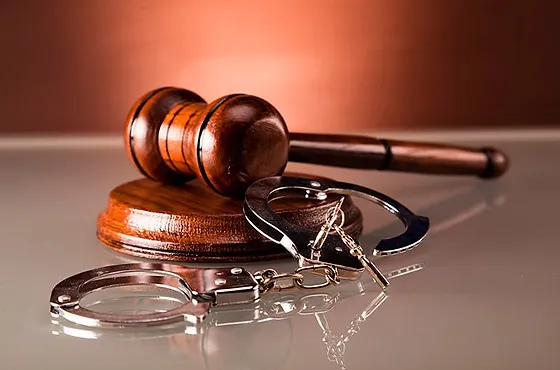Abstract
This article examines how international criminal law and abuses of human rights interact. It looks at the importance of human rights and how international criminal law may be used to remedy their abuses. The article focuses on important documents including the Universal Declaration of Human Rights and the International Covenant on Civil and Political Rights in order to emphasize the international legal foundation for resolving human rights breaches. It talks about the creation of international criminal courts, especially the International Criminal Court, and its authority to investigate crimes including violations of human rights. It also examines the difficulties and constraints associated with international human rights prosecutions.It also underlines the value of responsibility and prevention in advancing human rights, and it ends with a call to action for more global efforts to safeguard and advance human rights.
Introduction
The abuses of human rights pose a serious threat to people’s sense of worth and well being. These offences cover a wide spectrum of wrongdoings, such as crimes against humanity, genocide, economic and social injustice, civil and political rights violations, and others. An essential instrument for addressing these transgressions and making sure those responsible are held accountable is international criminal law. With an emphasis on the legal framework, the function of international criminal courts, difficulties in prosecution, and the significance of accountability and prevention, this essay investigates the connection between human rights breaches and international criminal law.
Understanding Human Rights Violations
Human rights violations refer to actions or policies that infringe upon the basic rights and freedoms to which all individuals are entitled. Civil and political rights violations include restrictions on freedom of speech, assembly, and unfair trials. Economic and social rights violations encompass inadequate access to healthcare, education, and discrimination in employment. Discrimination and inequality manifest as systemic bias and exclusion, while genocide and crimes against humanity involve deliberate acts to harm a particular group. These violations have a severe impact on individuals and societies, undermining the fabric of justice, equality, and human dignity.
International Legal Framework for Addressing Human Rights Violations
The international legal framework plays a vital role in addressing human rights violations. Key instruments, such as the Universal Declaration of Human Rights, International Covenant on Civil and Political Rights, and International Covenant on Economic, Social and Cultural Rights, establish legal standards for the protection and promotion of human rights. These instruments emphasize the principle of non-discrimination and provide a foundation for the development of international criminal law.
International Criminal Law and Human Rights
International criminal law emerged as a response to the need for accountability for the most egregious human rights violations. It encompasses the prosecution of individuals responsible for international crimes, including genocide, war crimes, crimes against humanity, and aggression. The establishment of international criminal tribunals, such as the International Criminal Court, represents a significant development in addressing human rights violations. These tribunals have jurisdiction over crimes related to human rights abuses and provide a forum for prosecuting and holding perpetrators accountable.
Prosecution of Human Rights Violations
The prosecution of human rights violations at the international level is a complex process. Challenges include the collection and preservation of evidence, securing cooperation from states, and ensuring fair trials. Nevertheless, several landmark cases have demonstrated the efficacy and impact of international criminal tribunals. Examples include the trials of individuals involved in the Rwandan genocide, the Balkans conflict, and the prosecution of war criminals from various regions. These trials have contributed to the development of international criminal law and have sent a strong message that human rights violations will not go unpunished.
Accountability and Prevention
Responsibility for abuses of human rights extends beyond isolated prosecutions. Truth commissions, restitution programmes, and other transitional justice procedures are essential for resolving historical wrongdoing and fostering peace. Additionally, to stop the cycle of human rights breaches, preventative initiatives are crucial. In order to stop current transgressions and promote a culture of human rights respect, education, awareness-raising, and institutional reforms are essential.
Landmark Cases
Menaka Gandhi v. Union of India (1978): In this landmark case, the Supreme Court of India expanded the scope of Article 21 of the Indian Constitution, which guarantees the right to life and personal liberty. The court held that the right to life includes the right to live with dignity and personal autonomy. This judgment marked a significant shift in the interpretation of human rights in India.
Vishaka v. State of Rajasthan (1997): This case addressed the issue of sexual harassment and laid down guidelines to prevent and address workplace sexual harassment. The Supreme Court recognized sexual harassment as a violation of fundamental rights, particularly the right to gender equality and the right to live with dignity. The guidelines, known as the Vishaka guidelines, provided a framework for employers to create a safe and harassment-free working environment.
Naz Foundation v. Government of NCT of Delhi (2009): This case challenged the constitutionality of Section 377 of the Indian Penal Code, which criminalized consensual same-sex relationships. The Delhi High Court decriminalized same-sex relationships between consenting adults, recognizing the right to equality and the right to privacy. The judgment was a significant step towards recognizing and protecting the rights of the LGBTQ+ community in India. However, it was later overturned by the Supreme Court in 2013, and the issue is currently under review by the court.
Conclusion:
A framework for dealing with severe abuses and making sure offenders are held accountable is provided by the convergence of human rights breaches and international criminal law. Prosecutions for infractions are based on the international legal system, which includes important human rights documents. The pursuit of those accountable for violations of human rights is a key function of international criminal courts like the International Criminal Court. Yet, there are still issues with prosecution, necessitating continuous work to remove barriers and enhance accountability systems. The international community may contribute to a society where human rights are consistently upheld, safeguarded, and promoted by promoting responsibility and prevention.


